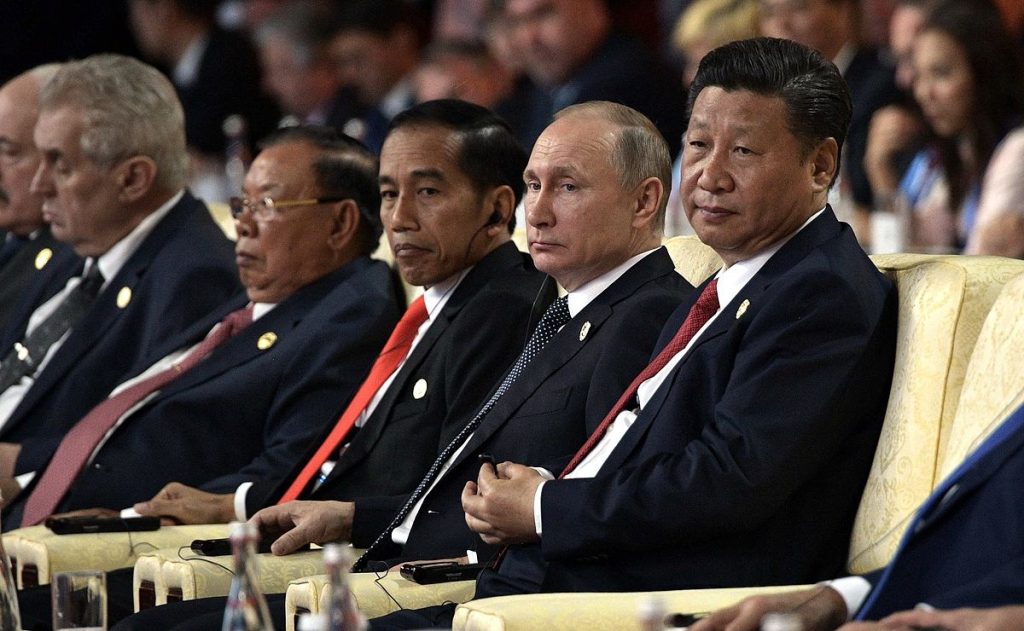Social Movements in Promoting Human Rights in China (April)
In April 2019, the Rights Writers discussed the role of advocacy groups and social movements in promoting human rights and social justice in their area.
Non-governmental organizations (NGOs) and social movements are essential for change in human rights. They enable and motivate both international and domestic action against abuses of rights. Given China’s vast, perpetual, and seemingly unsolvable propensity for rights abuses, the impact of NGOs and social movements, or lack thereof, on China deserves close examination. Furthermore, China’s economic prowess and internal security also raises questions on the efficacy of external intervention. The extent to which civil society can operate in China should neither be overstated nor understated. Through bursts of grassroots activism and adaptive NGOs, China’s human rights record can be bettered, albeit incrementally.
China is in a unique situation in its relationship with international NGOs and its civil society. With the former, the Chinese government is politically and economically powerful enough to prevent the intrusion of any international organizations it deems a threat to its interests and resist most pressures from the international community for reform. The methods used traditionally by global NGOs, such as Human Rights Watch, have little impact on the changes in behavior of the Chinese Communist Party (CCP). One method particularly useful in the past has been dubbed “Naming and Shaming”, where organizations identify abuses and actors and shine a spotlight on these issues in attempts to influence nations that value human rights to act. Unlike in Romania after the Cold War, a country that was also a repressive regime where this tactic was effective in helping in bettering its human rights record, “Naming and Shaming” does not phase the CCP in most occasions. Despite both China and post-Cold War Romania having repressive regimes, weak internal civil society, and strong government control of external NGO access, one important difference contributes to why successes in Romania do not translate to successes in China: China’s economy.
As discussed in February’s blog, China’s economy and trade relations with other countries have effectively blocked any responses by those nations to the CCP’s human rights abuses. Romania did not and does not have an economy of that strength. The United States was able to revoke Romania’s most-favored-nation trade status in response to human rights violations, a move that was attempted to respond to China, and failed. “Naming and Shaming” requires both the identification of the problems and threats to responses or international image in order to be effective. China’s media and information control helps obfuscate human rights violations, and the recent public embrace of the CCP’s Uighur internment camps show that China is not afraid of damages to its national image. Other than the inefficacy of traditional tactics, NGOs that try to promote human rights from a grassroots level face stringent controls and barriers to even enter mainland China. Any organization with a mission the CCP perceives as contrary to its interests would not even be allowed to have the chance to operate. International NGOs are stuck between a rock and a hard place when deciding on their strategy for China: expend resources on likely ineffective campaigns to engage the international community or attempt a long and tedious process to operate in China knowing that approval is only given to those who serve the interests of the CCP.
On the domestic side, Chinese civil society is weak relative to the power of the central government. The modifier of “non-governmental” for any organization is almost a misnomer, since the existence of any organization in China is premised upon at least a tacit consent of the CCP with the organization’s missions and actions. In order for domestic organizations to continue their existence, they must align their interests with those of the CCP. The descriptions of the space of operations for international and domestic organizations in China seem to depict the country as irredeemable and efforts made as futile. However, the potential for change through adopting untraditional methods should not be understated.

It is erroneous to assume that the entirety of the CCP agree on the interests and priorities of the Party and the nation. It is equally flawed to believe that the primary goal of the CCP is to oppress its people. Dispelling these potential misunderstandings or biases, a closer look at changes in China’s behavior finds that despite stringent controls of NGO presence in China, in areas of environmental initiatives and labor rights, there have been incremental changes. On environmentalist issues such as pollution and climate change, China has allowed organizations such as Friends of Nature to help with the CCP’s own goals on tackling these issues. China has also hesitantly extended labor rights in the Belt and Road initiative. Although these projects are abroad, the adaptation of the missions of NGOs to better align with the interests of the CCP while still sparking change should provide a framework for other NGOs to follow. Wherever the CCP leaves room in its interests for change for the better, NGOs must nudge policy and preferences of the Party towards a position that results in better welfare for its citizens. Little change is better than no change at all.

Ultimately, the effectiveness of organizations and people that lack influence and power vis-à-vis the Chinese government rely on the adaptability of these groups. In a world where it is difficult to persuade the international community to act and implausible to spur organized protests within China, it is an imperative for actors desiring change to exploit whatever flexibility China allows within the scope of its national and party interest to better the welfare of those within the country. Human rights must not just be valued in and of itself, but instead be instrumental to future achievements.
